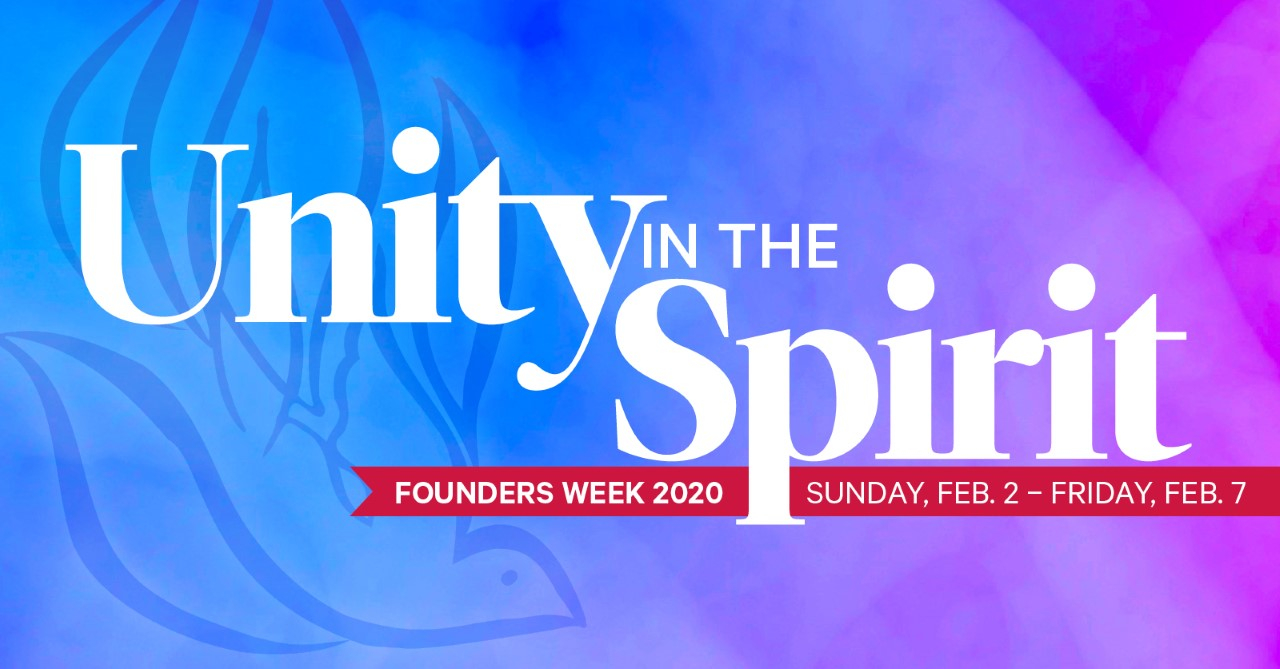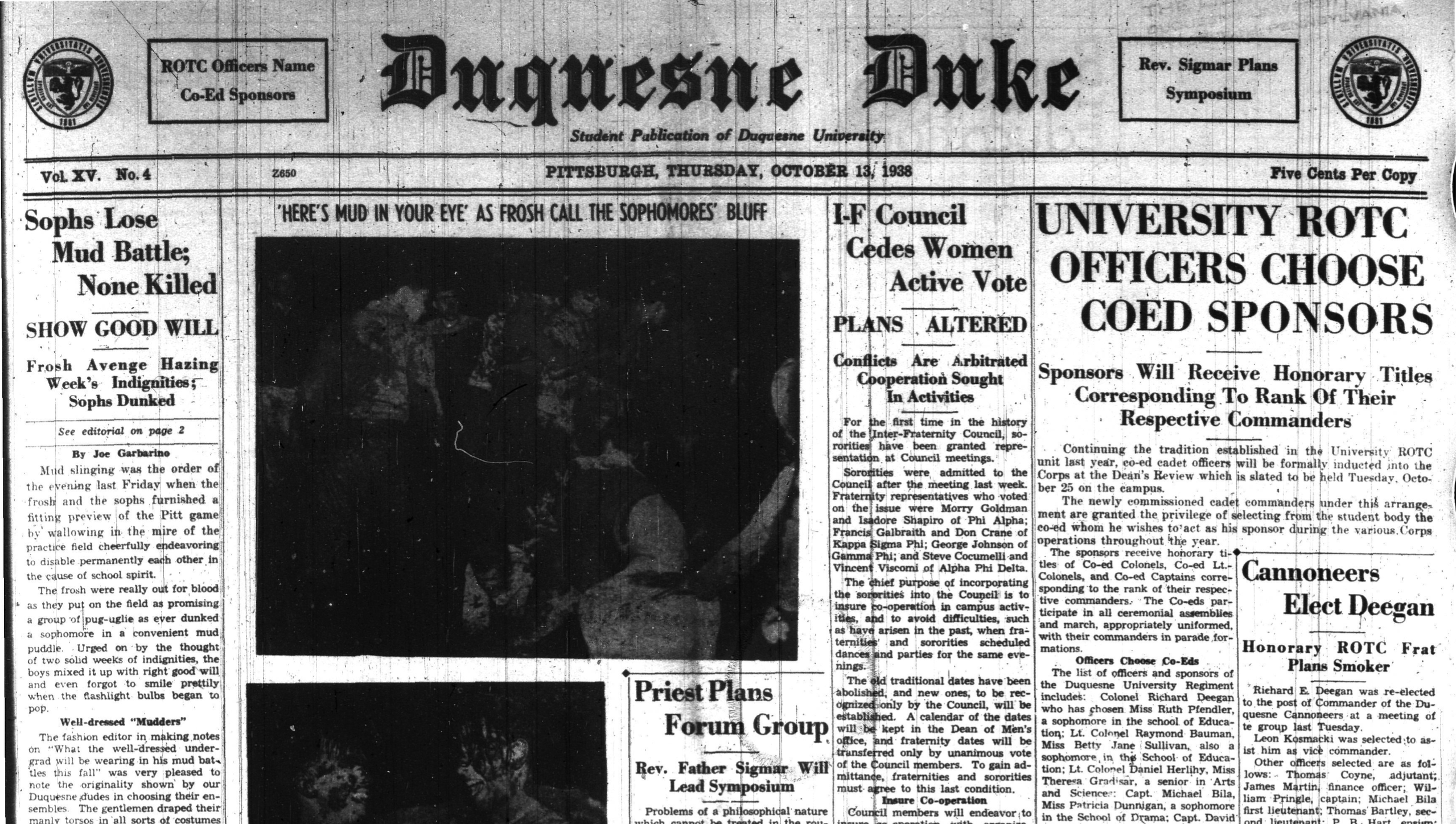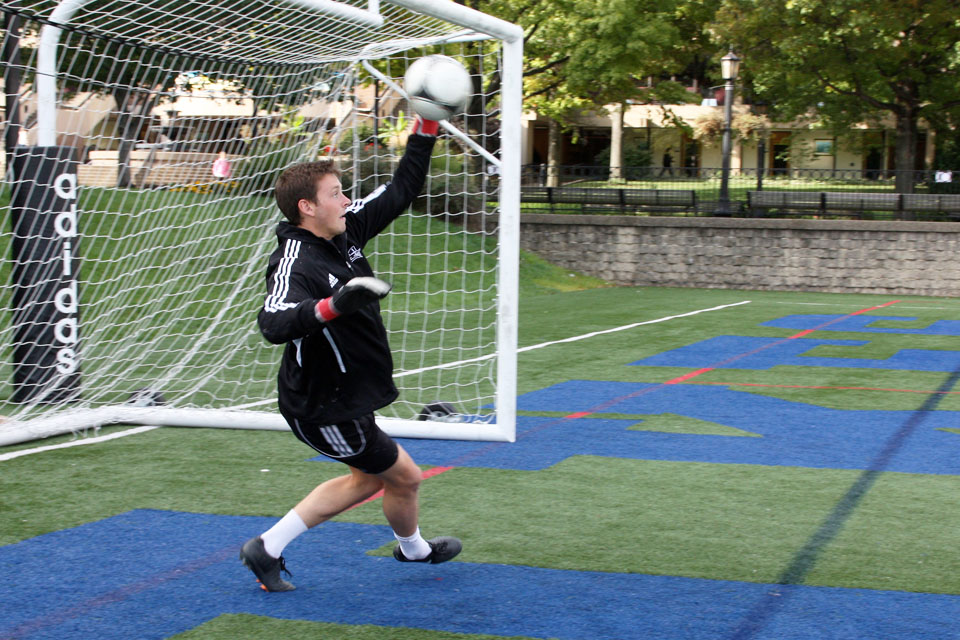
Kellen Stepler | Features Editor
Claude Poullart des Places isn’t just a name of a dormitory on Duquesne’s campus, and Francis Libermann is more than just a building on Fifth Avenue.
Des Places and Libermann were the co-founders of the Congregation of the Holy Spirit. The congregation began in France in 1703 and highlights the acts of priests, fathers and brothers sacrificing themselves to minister to the poor and disadvantaged.
The Spiritan commitment to serve the disadvantaged came to Pittsburgh in 1878, as Duquesne University was founded as Pittsburgh Catholic College by Rev. Joseph Straub and the Congregation of the Holy Ghost. The school was founded to serve the immigrant poor in Pittsburgh.
“From their humble beginning in France as Catholic priests and missionaries more than 300 years ago, the Spiritans have worked to live and teach the Gospel, in particular to the underserved and marginalized,” Ken Gormley, university president, said. “Today, their nearly 3,000 members — priests, brothers and lay associates — are present in 60 countries, where their ministry includes education, parish work and refugee ministry.”
This year’s theme for Founders Week is “Unity in the Spirit,” and runs from Sunday, Feb. 2 to Friday, Feb. 7.
“The Spiritan Founders gave their charism — their spirit filled gift — to the priests, brothers and lay people who followed them in ministry,” Rev. Bill Christy, the director of Spiritan Campus Ministry, said. “How this gift is lived out today on campus is the uniqueness of our school.”
The event kicked off in the chapel on Sunday for the Feast of Francis Libermann. The date was the anniversary of Libermann’s death in 1852 in Paris, France.
Libermann was ordained a priest in 1841, and his desire to establish a missionary congregation was approved. In 1848, the congregation he founded joined with the already legally established Congregation of the Holy Spirit.
Rev. Sean Hogan, president of the Duquesne Scholarship fund, and Dessa Mrvos, director of health services, hosted an event titled “Meeting People Where They Are: The Legacy of Laval” on Monday, Feb. 3. Both Hogan and Mrvos shared their experiences about meeting people from all over the world in the Spirit of Laval.
According to the Congregation of the Holy Spirit’s website, Spiritan Jacques Laval worked with Libermann in 1841 among the 70,000 recently liberated slaves on the island of Mauritius. Laval believed that prayer was the most important human contribution, even more vital than skilled organization.
Music from all over the world filled the Africa Room later Monday night as undergraduate and graduate students from the Mary Pappert School of Music shared their musical talents, and members from the International Student Organization (ISO) shared how music brings people together from their cultures in the event titled “Music for Unity: A World Music Concert.”
“The Spiritans have a global presence to reach out and connect all over the world,” Joe Sheehan, the artistic director for the event and professor in the music school, said. “It makes sense to have a concert from music all over the world.”
Selections from Peru, Chile, South Korea, Colombia, Venezuela, Brazil and Argentina were represented in the concert.
“Music is a language we can all understand,” Natalie Martinez, the president of the ISO, said.
Sandra Quiñones, a professor from the school of education, and Rick Zoucha, a professor from the school of nursing, gave a presentation on Participatory Action Research (PAR) on Tuesday, Feb. 4, in the Power Center Ballroom. PAR is a community-engaged research method that serves the academic world while contributing to the community at the same time.
Then, guests over 21 could hear from the Spiritans in an event titled “Evening of Flights,” where some Spiritans spoke about global fundrasing efforts while partaking in a beer flight and hors d’oeuvres. Finally, Tuesday night closed with a panel of Duquesne Greek Life Alumni speaking about brotherly and sisterly unity during their time at Duquesne. The event was only open to students currently in Greek Life.
Love was in the air Wednesday morning as the “Show a Little Love” service project took place in the Union Atrium as the Duquesne community could make cards for local veterans to be shared on Valentine’s Day.
Later, the Agapè Latte speaker series event took place at 7 p.m. in the Towers Multipurpose Room as Anthony Kane and Ashley Geese spoke on the unity of marriage and how Duquesne influenced their relationship and engagement. Finally, students could attend an interview with a Spiritan, where Adam Wasilko interviewed Father Ray French on his life as a Spiritan.
A reception for people 21 and older honoring the work done on campus will take place Thursday from 4-6 p.m., and Hogan Dining Center will feature an international menu for dinner. Spiritans will meet up with some students in their dorm building at 8 p.m. to share how they understand the ideas of unity and community at Duquesne as inspired by the Spiritan Founders.
The Director of Mission Animation, Luci-Jo DiMaggio, also noted that Founders Week highlights Duquesne’s Spiritan roots in different ways, from intellectual, to prayerful and even to celebratory.
“We are able to draw attention to Spiritan missions around the world and the work that they do, provide a forum for Spiritans to share their stories and highlight so much of the amazing mission driven work done on campus,” DiMaggio said.
The week concludes Friday, Feb. 7 in Trinity Hall with a Vespers traditional prayer, followed by a reception by the Spiritans. RSVP is required for this event.
“I encourage our students, faculty and staff to continue to support Founders Week — at tend the events and activities,” Gormley said. “Also, reach out and get to know the Spiritans who are here on campus each day in the classroom, offices, the chapel and on Academic Walk. They set a standard of kindness and caring for others that we all admire and emulate.”




